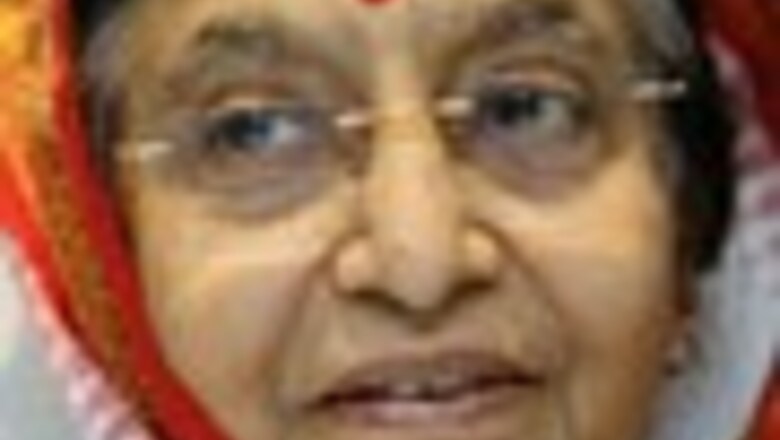
views
New Delhi: President Pratibha Patil on Saturday appealed to Maoists and other extremists to abandon their path of violence and come for dialogue with the government.
"The proponents of extreme ideologies and the followers of Left wing extremism must abandon their path of violence. I call on them to join national efforts for growth and development," Patil said on the eve of India's 64th Independence Day.
"I hope that everybody, including the civil society, will come forward and move them in this direction. Protracted developmental efforts will be needed in these areas," she said.
There are at least 36 districts in India that are Maoists-infested in states like Andhra Pradesh, Bihar, Chhattisgarh, Jharkhand, Maharashtra, Orissa and West Bengal
Patil said nation building demands the ability to work diligently and patiently and requires the purpose and ability to focus on issues which unite.
"It requires a spirit of conciliation. This is possible when dialogue is chosen as the channel for communication," she added.
The president also called for zero tolerance towards corruption.
"Zero tolerance towards corruption and working with the highest standards of public service will definitely result in efficient governance systems and will have a multiplier effect on development and growth," she said.
The country's first woman president also expressed her anxiety about the "growing insensitivity" shown to each other as increasing emphasis is given to materialism.
"Social consciousness is on the decline. Some social evils persist. This must change. Today is the best opportunity when ground-breaking achievements alongwith a moral and ethical renaissance can take place," she added.
She also called for speeding up of projects to fill the "infrastructural deficit" that impedes India's economic growth and was not in sync with its image of an emerging global player.
The President also laid importance on expansion of industries and encouraging and pursuing cutting-edge technologies, research and development.
"The categorisation of nations as rich and poor, developed and developing may well be overtaken by a new definition of those nations that innovate rapidly, as opposed to those which do so on a lower scale.
"To be in the forefront of cutting-edge technologies, research and development in all fields must be encouraged and pursued in the country," she said.
"We must also speed up the construction of physical infrastructure. We need new roads, ports, airports, power projects as well as reinforcement of existing facilities. The augmentation will fill the infrastructural deficit that impedes overall economic growth and is, in many ways, out of sync with our image of an emerging global player," she said.
She also emphasised the importance of education in building a India of tomorrow.
"I believe that empowerment through education is important as it opens many doors of opportunity. The Right to Education Act has made free and compulsory primary education for children a fundamental right. It is important that secondary education is also universalised, as we seek to increase enrolment levels in higher education.
"This will provide the 'brain power' for the nation. We are living in an age where innovation is shaping many areas of human activity. New technologies can enhance our agriculture and industrial productivity," she added.
Noting that industries should continue to grow, the president said, Indian companies should persist with efforts to be efficient and globally competitive.
She also said a "fresh perspective" is required for agriculture to steer it towards a second green revolution.
But, she added, that it cannot be looked in isolation and needs to be connected with other sectors of the economy.
"Linking industry with agriculture would provide a basis for growth of industry in the rural areas and also promote agriculture business," Patil said.
She said support to the rural poor and farm labour through skill development, vocational training and social welfare programmes, must be a priority.

















Comments
0 comment